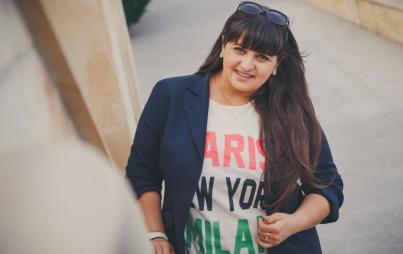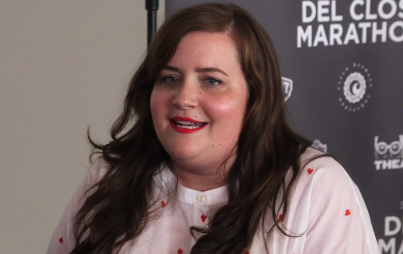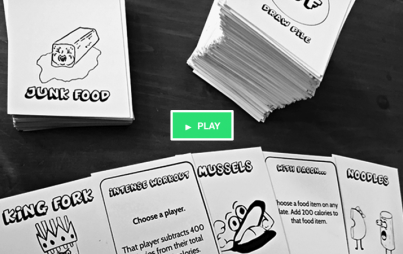
Hi. My name is Carrie. I’m a racist.
Hi. My name is Carrie.
I would love to tell you that I haven’t always been this way, but that’s a damn lie. I have. For most of my life, I didn’t know I was a racist. And if I did know it, I pretended not to know it so hard that I couldn’t see it.
Unknowing kept me safe.
Insulated.
Sympathetic but without understanding.
As a young child, we moved from the isolation of the frozen Alaskan tundra to the parched desert of West Texas. For the first time in my young life, I was surrounded by a large group of racially diverse children. I also found myself as part of a state-mandated desegregation program. Black children were bussed in from the south side of the tracks (yes, that was the actual phrase people used), in an effort to integrate races without truly integrating neighborhoods.
This experiment in desegregation went about as well as you would expect. The state could make us go to the same school, but they could not make us be friends. In my later elementary school years when I was bullied by the white kids whose fathers were wealthy oilmen and mothers who drove expensive SUVs and flew to Dallas to shop at the nearest Nieman Marcus on the weekends, I was enveloped by my friends of color. Those generous and kind children knew what it was like to be on the outside, and they welcomed me into their circle.
My family was poor; we lived in a blue-collar neighborhood with several first-generation Latinx families and a few lower middle-class white families whose children were also bullied by wealthier (or more socially desperate) white kids. I was thoroughly rejected by the upper middle-class white children and continued to find safety with my friends who were every shade of the rainbow, except white. Even as a nine-year-old kid, I knew that race mattered more than economics. My friends of color were disposable, unknowable, and even though they were loyal and good, I was overcome by my desire for white inclusion.
As the years wore on, I maintained those friendships with people of color in my neighborhood and school. I eventually grabbed that brass ring of white inclusion and held on for dear life as it lifted me to nominal popularity and boosted my white-born privilege and opportunities. My father, an intense history buff, traced our family tree back to the American Revolution. He provided the proof I needed to join the Daughters of The American Revolution (DAR). I did it for the college scholarship opportunities, for the doors it would open. I didn’t consider for even a second of what that meant for anyone else except me. I passively accepted that none of the people of color could ever truly be included in DAR. How could they? Their ancestors were busy being murdered, enslaved, obliterated, and oppressed by my ancestors. As a 17-year-old white girl, none of that ever crossed my mind.
You Might Also Like: White Fragility: Why It's So Hard To Talk To White People About Racism
Later, after I left West Texas and went to school to help poor black and brown people in developing countries, I took a job operating a medical organization that provided surgeries and medical services to the indigenous population in Guatemala. I loved the work; I loved actively providing something medical care for an underserved population that survived genocide perpetrated by their country and assisted by ours.
But underneath it all, I began to feel uncomfortable. During my travels to Africa and Latin America, a nagging, internal voice continued to pull my attention. It was quiet at first. It grew louder the longer I did the work. My fears that maybe I wasn’t really doing the good I thought I was doing emerged.
Did I see these precious, beautiful humans as fully embodied and real? Fully human? Fully my equal on every level that was not material?
The short answer is no.
That was 11 years ago. I realized then that my subconscious beliefs of white superiority were pervasive, enmeshed, and so deeply rooted that it would take a lifetime of soul surgery to untangle. That my white savior complex looked good on the outside to other white people who supported me and dehumanized the people of color I was trying to “help”.
It dehumanized my friends.
Maybe you’re like me. Maybe you didn’t know that you are a racist. Maybe that phrase sticks in your throat, punches you in the gut, makes you recoil on a primal level because YOU LOVE PEOPLE OF COLOR. You love your neighbor. You want good things for them. I did, too, and I still do. And yet it doesn’t change the truth that as white people, racism is ingrained in us.
Here’s how to move forward, go deeper, be part of healing the wounds racism has brought about, and continue your work in waking up to the racial reality around you.
Stop talking.
We have been sitting at a table that was built by the back-breaking labor of people of color. It’s time we stand up, move away from the table, and let them have the conversation. We can listen in the wings, waiting for opportunities to help them be heard. We’ve had the lion’s share of attention, power, and decision making for the last 300 years. It’s time for us to STFU and listen, even if the words hurt.
Don’t take rebuke from POC personally.
Or, in other words, drop your defenses. I was called out by an old and trusted friend during the writing of this article for asking them to do labor for me. Was it my intent? Nope. Does that matter? Also nope. It is our job to be understanding, to be resilient, to be present, and to be humble. There is no room for defensiveness. We don’t know what it’s like to be Black or brown in America. Which leads to the next point…
Believe people of color.
Imagine people not believing a single thing you say only because YOU say it. POC have been disbelieved and misrepresented for hundreds of years in our country for no logical reason. They have been disbelieved based solely on their race for centuries. When they tell you how they feel, what they see, what their experiences are, and what they need from you, BELIEVE THEM. Full stop.
Be empathetically and intellectually informed.
The internet is teeming with articles, books, tv shows, and all manner of resources about race in America. Google it, read/watch it, assimilate it, let it be real, and be well informed.
I still wake up every day knowing that no matter how much work I do, I will always have more to do when it comes to seeing, hearing, advocating, and valuing people of color. And I’m happy to do it. This is how we change our culture.





![[My son] is not gross. [My son] is not gross.](/sites/default/files/styles/profile/public/images/article/2019-05/image1%2520%25289%2529.JPG?itok=WmvvKF9O)


